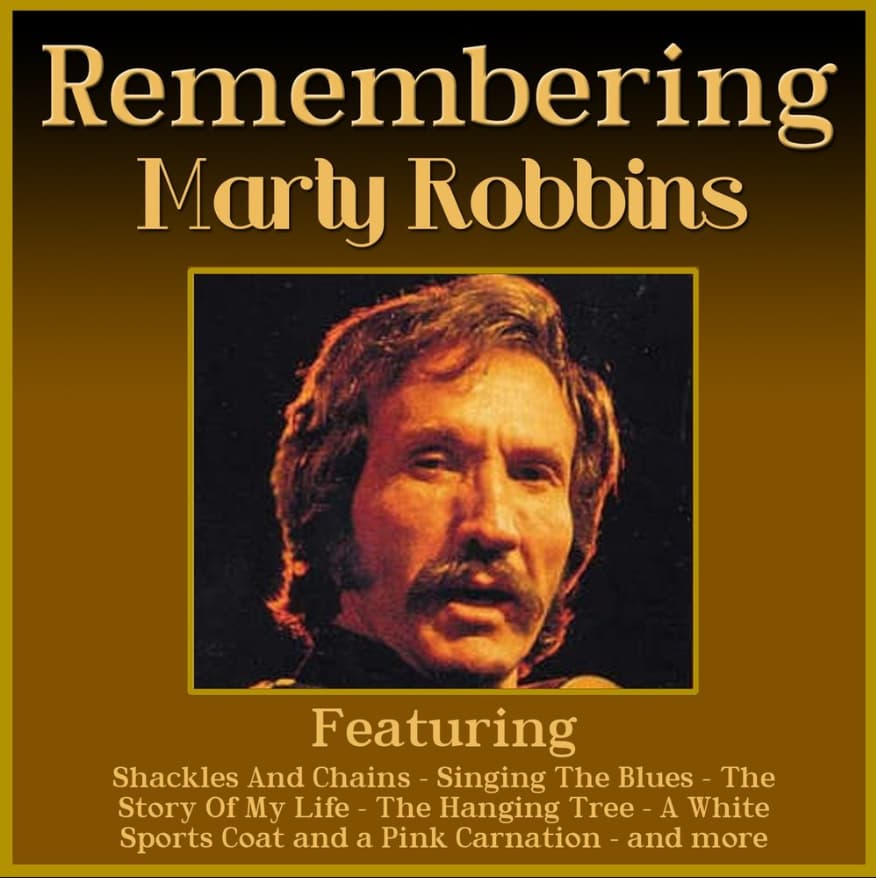
An Ode to Love’s Enduring Captivity
For many, the name Marty Robbins conjures images of dusty Western landscapes and tales of gun-slinging heroes. He was, after all, a country music legend, a masterful storyteller who brought the vast, lonely plains to life with his smooth baritone. But beyond the epic narratives of “El Paso” and the romantic serenades of “A White Sport Coat (and a Pink Carnation),” lies a deeper, more poignant side to his artistry. A side that explored the quiet sorrows of the human heart, the kind of pain that doesn’t come from a bullet but from a broken promise. This is the world we enter with “Shackles and Chains,” a song that, while not a chart-topping behemoth, holds a special place in the hearts of those who appreciate the raw, unvarnished emotion of classic country.
First released as a B-side to his 1957 hit “The Hanging Tree,” “Shackles and Chains” never charted as a single in its own right. It was a more understated, intimate piece, overshadowed by the more commercially-oriented A-sides of its time. However, its inclusion on the compilation album “Gunfighter Ballads and Trail Songs” cemented its legacy. This album, a cornerstone of Marty Robbins‘s career, provided a home for this ballad, allowing it to reach a wider audience over time. It’s a testament to the song’s timeless quality that it has endured, becoming a beloved part of his extensive catalog.
The story behind “Shackles and Chains” is a familiar one in the annals of country music: a tale of heartbreak and betrayal, but with a unique twist. The lyrics, penned by the prolific songwriter A.P. Carter of the legendary Carter Family, speak not just of a love lost, but of the lingering, inescapable bond that remains. The “shackles and chains” are not physical, but emotional. They are the memories, the promises, and the shared history that tie two people together long after the love has faded. It’s a powerful metaphor for the invisible bonds of a failed relationship, a theme that resonates deeply with anyone who has ever felt trapped by the ghost of a past love. The song’s sorrowful melody and Robbins‘s heartfelt delivery perfectly capture the feeling of being a prisoner to one’s own memories.
There’s a quiet dignity in the song’s sorrow. Unlike a song filled with anger or rage, “Shackles and Chains” is steeped in a melancholic acceptance. The narrator isn’t lashing out; he’s simply stating a painful truth. He’s bound to a memory, a love that has left him feeling captive. This emotional honesty is what makes the song so powerful. It speaks to the universal experience of holding on to something you know you should let go of, the internal struggle between moving on and clinging to the past. It’s a feeling that only intensifies with age, as the past becomes a more powerful force, and the memories we hold dear become both our comfort and our cage. Listening to Marty Robbins sing this song feels like sitting with an old friend, reminiscing about a time when love was both the greatest joy and the deepest sorrow. It’s a reminder that some of the most profound emotions are found not in grand gestures, but in the quiet, reflective moments of a simple song.